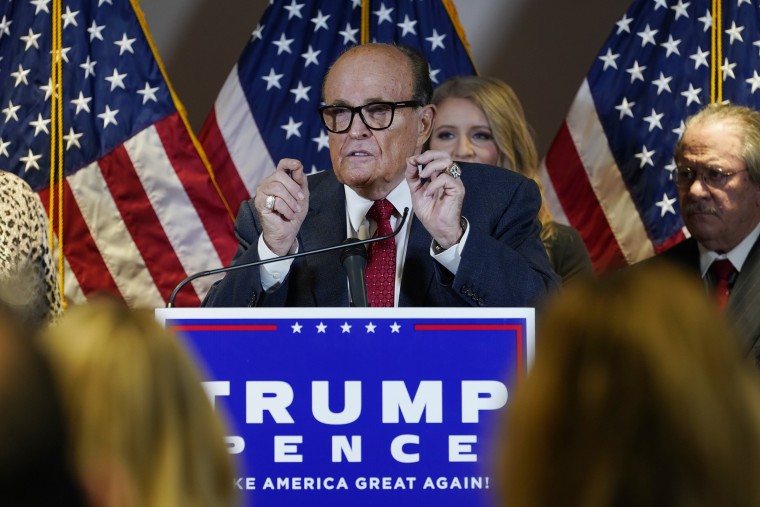Donald Trump was hospitalized in October after contracting the coronavirus, and many people close to him have been infected as well. Fortunately, like the president himself, they've been able to bounce back relatively quickly.
But is this entirely a matter of good health and good fortune? Rudy Giuliani, a Trump lawyer and a member of the president's inner circle, boasted yesterday that he received special hospital care because of his "celebrity" status. The former mayor added that he received "exactly the same" drug "cocktail" the Trump took at Walter Reed. "The minute I took the cocktail yesterday, I felt 100 percent better," Giuliani said. "It works very quickly, wow."
Similarly, Ben Carson, a member of the president's cabinet, recently conceded Trump "cleared" him for a monoclonal antibody therapy most Americans won't have access to.
It led the New York Times to report:
Mr. Giuliani's candid admission once again exposes that Covid-19 has become a disease of the haves and the have-nots. The treatment given to Mr. Trump's allies is raising alarms among medical ethicists as state officials and health system administrators grapple with gut-wrenching decisions about which patients get antibodies in a system that can only be described as rationing.
The article added that leading FDA officials have "privately expressed concern in recent months that people with connections to the White House appeared to be getting access" to special antibody treatments that are in short supply nationwide.
The scarcity is such a problem, the Times noted, that the National Academies of Sciences, Engineering and Medicine is "holding a session next week to help medical professionals sort their way through rationing questions."
The question then becomes why scarcity may be less of a problem for those with direct connections to the outgoing president.
TPM had a related item along these lines yesterday, asking how Giuliani gained access to "exactly the same" drug "cocktail" Trump received.
After all, they're in extremely short supply. Monoclonal antibodies, which medical science generally agrees are the best shot at an effective treatment for the disease, are expensive and rare. One Florida hospital reported that its phone lines have been "bombarded" by people wanting the drug. What's more, all of the doses in circulation currently belong to the U.S. government. The government bought 300,000 doses at around $1,500 a pop earlier this year. Those are the only doses being distributed in the United States at the moment, and are available for free per the Department of Health and Human Services.
To be sure, it's possible Giuliani's "celebrity" status was irrelevant. Maybe he was fortunate and received a scarce treatment for reasons unrelated to his powerful client in the Oval Office.
Or maybe that client did his friend a favor? If, as the Times noted, FDA officials are concerned about special access for those "with connections to the White House," the question hardly seems outlandish.
Update: According to materials from HHS, Washington, DC, was given just 108 doses of the monoclonal antibody cocktail. Giuliani received one of them.

